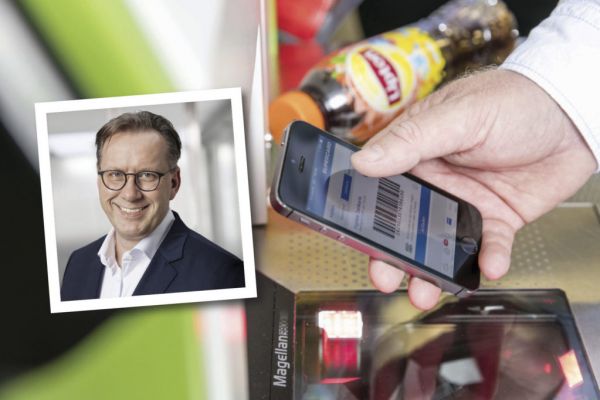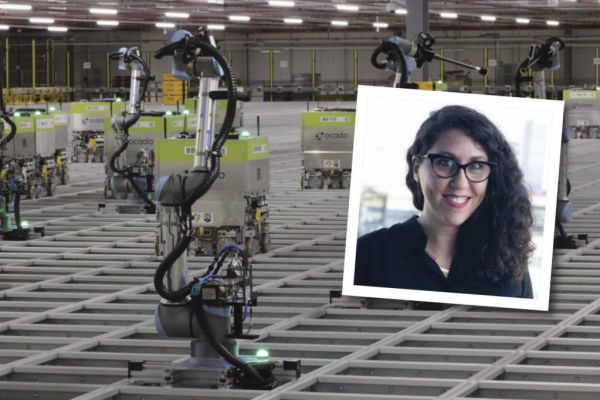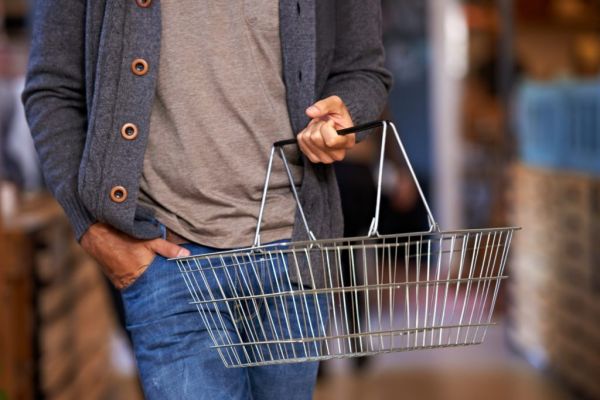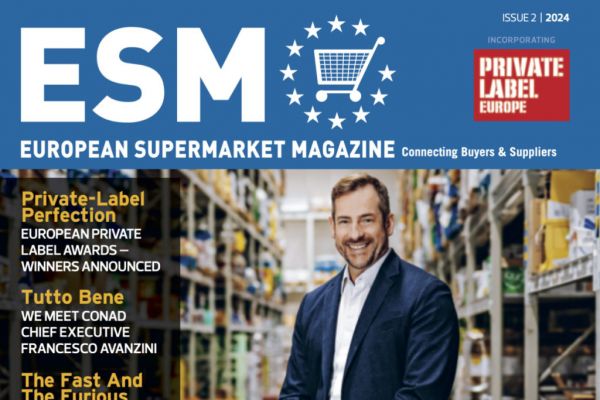In the run up to Christmas 2018, ESM is proud to present a recap of some of our biggest articles of the year, exclusively for Premium website subscribers. At the start of the year, we travelled to Bologna to meet Francesco Pugliese, the chief executive of Italian retailer Conad. This article first appeared in ESM Issue 2 2018.
There’s a distinct whiff of cigar smoke as ESM enters the executive office of Francesco Pugliese, the chief executive of Conad, Italy’s second biggest retailer. That’s not surprising, given the events of the past few hours.
The results of the Italian general election – a victory for populism, albeit with no clear winner – are plastered all over the giant TV screen that adorns the CEO’s office.
As Pugliese himself admits, it’s “been a long night”. And it’s only 9.30 in the morning.
“If I have to wish for something,” he says of the political impasse, “it’s that everything is done in a hurry, because we cannot wait. As a country we need to provide a quick answer, one way or the other.” Later, he suggests that the political machinations that have led to such a stalemate are “absurd”, noting that even “Machiavelli could have done better”.
It’s been four years since ESM last interviewed Pugliese, and it seems the former Barilla general manager has lost none of the ebullient charm that makes him one of Italy’s most-admired business leaders.
Taking The Initiative
In December, Conad, which boasts some 3,200 stores, posted €13 billion in turnover, an increase of 5% year-on-year; outperforming the market average of 2.5%. Its market share rose above the 12% mark, while its leadership in the supermarket segment also strengthened, to 21%.
At the forefront of this performance was a €1.1 billion strategic development plan, of which €413 million was invested last year, €402 million will be invested this year, and €286 million will be invested next year.
The industry is changing rapidly, Pugliese explains, and Conad needs to be ready for that change.
“The critical factor is speed,” he says. “If I were to ask you what the opposite of ‘quick’ is, you would say ‘slow’. But today, particularly in business, the opposite of ‘quick’ is ‘dead’.”
Underlying this adaptability is Conad’s structure itself – comprised of seven regional cooperatives, the company is able to “see better, and sooner, what the potential of this country is,” says Pugliese. “We are a cooperative of entrepreneurs that live in the place in which they operate.
“In the last few years, we’ve seen that Italians want to start ‘playing the game’ again. We believe in this country, we believe in Italian industry. This is why we’ve decided to make such a significant investment.”
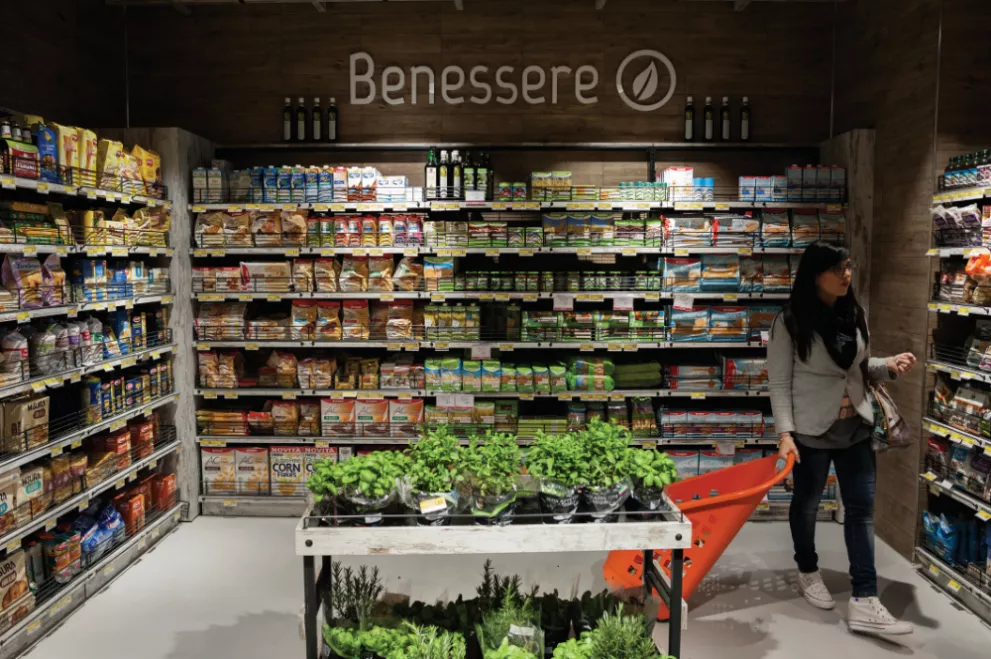
Cooperative Structure
The nature of any devolved business, as Conad is (its seven cooperatives include Nordiconad, Conad Centro Nord, Commercianti Indipendenti Associati, Conad del Tirreno, Pac2000A, Conad Adriatico and Conad Sicilia), means that standards can vary depending on geography and management structure.
During our meeting, Pugliese points to a poster on the wall that shows the company’s ‘strategic pyramid’; a manifesto that all its divisions diligently adhere to.
“When it comes to performance, there’s no cooperative that is performing weaker than the market average,” he says. “We do have weak areas, however, such as our territorial presence in northern Italy. Over the past few years, we’ve undertaken acquisitions in order to improve that.”
Pugliese explains that a small proportion of each cooperative’s operations are managed locally, with the remainder managed centrally. The majority of the group’s purchases are made on a national basis, or as part of a buying alliance (it is a member of the Agecore alliance, along with Germany’s Edeka, France’s Intermarché, Spain’s Eroski, Swiss retailer Coop and Belgium’s Colruyt Group).
“It’s a hard balancing act,” he says. “But our structure is all about people, so we have been very focused on involving our regional managers and operating teams, and empowering them. And one of our greatest strengths is that we stay together.
“Many of our cooperatives are strong businesses in their own right. But we know that by sticking together, we can compete on an equal footing with our competitors.”
This, of course, begs the question – in an era in which cost-cutting and streamlining is the norm, is seven coopratives too many? Would Conad be better served by consolidating around one or two larger cooperatives?
“In 1962, when we were founded, there were 14 cooperative buying groups in Conad,” says Pugliese. “In 1991, there were 33. Now there’s seven. I would agree that seven cooperatives are too many, but one cooperative is too little.
“We understand that in order to operate effectively in the market, we need to create a critical mass and we need to streamline our processes. We’re in the middle of discussions on the best way to achieve this.”
Private Label Growth
Private label has been one of the key sales drivers at the group in recent years; its market share for private brands currently stands at 30%, compared to an industry average of 19.5%.
As well as new launches such as Verso Natura, a range of organic and sustainable products, Conad is also launching a line called Alimentum, which will include gluten-free and lactose-free products, as well as beauty-care range, Conad Essentiae. That’s on top of its Sapori & Dintorni gourmet offering, and its value and mid-tier ranges.
“With Verso Natura, we’re going for organic, sustainable and fair-trade, all under the same umbrella,” says Pugliese. “In its first year, the brand posted €160 million in sales, and we expect it to reach €250 million this year.”
The group has also invested heavily in ensuring its fresh produce is of optimum quality - during ESM’s visit, we had the opportunity to drop into a nearby Conad Ipermercato, which was bursting with local produce, not to mention a host of standalone stands devoted to particular food trends.
“It doesn’t really make a difference whether a product looks good, it really matters that it tastes good,” he says. “Maybe it’s more expensive, 20 cent more, for example, but it tastes a lot better. We’re working very intensely on this.”
This in turn has required significant investment in Conad’s logistics network. Ahead of my visit, I’m sent a fact sheet that lists some of the group’s recent supply chain achievements, both in terms of cost and environmental savings.
The group has used collaborative logistics to reduce its CO2 emissions by 74%, while shorter distance journeys are now undertaken in trucks powered by natural gas. It recently signed a deal to install electric car charge points at 250 locations by the middle of 2018, while last August, the group joined Ecologistico2, a network of Italian companies promoting environmental protection and sustainability throughout the supply chain.
“The latest Mediobanca survey on the stock days of our warehouses, found that we carry stock for up to 16 days on average,” Pugliese says with a smile. “That’s the best efficiency level in Italy, and one of the best in Europe.”
Getting The Message Out
Conad has invested some €12 million over the past three years in ensuring that it is able to better read the shopping habits of its customers - their likes and dislikes, how they engage with the brand both in-store and online - and this has helped shape its communication approach. The brand’s latest marketing venture is Nerissimo, a series of tongue-in-cheek news broadcasts on its YouTube channel, hosted by actor Neri Marcorè; in one episode, for example, Marcorè conducts an interview with ‘Italy’ herself.
“We’re using all available media channels, based on their individual peculiarities,” says Pugliese. “If we want to address young people, that use Facebook or YouTube, we create something like Nerissimo. We talk about topics that are important to us such as the origin of our raw materials, local products, sustainability and organic, but in a lighter, more intriguing way.
“In more traditional media, such as newspapers, we adopt a more institutional approach.”
He cites an example from last year, when Italian dairy farmers were warned that despite skyrocketing production costs, there would be little change in the price paid per litre. Conad adopted a different line.
“We were very clear in the press – we told farmers that our starting price for dairy was 38 cent per litre, when the industry was telling farmers that they wouldn’t be able to get any more than 34 cent per litre,” he says. “Some of the biggest farmers associations in Italy congratulated us on our approach.”

Online Focus
Equally canny is the business’ approach to e-commerce. Pugliese says that some years ago, he predicted that “with the arrival of Amazon, many things would change in physical stores,” and thus it has come to pass, particularly in areas such as baby care.
“All over the world, babies get changed six times a day,” he says. “It’s the number one spending item in a family with young kids, and it’s a recurring type of consumption. It’s also bulky; it takes up 50% of your trolley space.
“Four years ago, I predicted that sales of baby products would fall in physical stores, and Amazon would take the lion’s share of sales in this category. And that’s actually what’s happening now. However, there’s a difference between nappies and courgettes, or aubergines, or ham. With these type of products, I don’t think we will see as much of an increase in online shopping.”
Pugliese describes Conad’s online shopping platform as “an add-on service, rather than a replacement service”, and while there are already stores offering click-and-collect services (the group has also teamed up with online startup Supermarket24 in some locations), e-commerce also provides additional benefits such as customer relationship management structures, which in turn will help to make Conad’s stores better.
“There is a basic mistake that’s being made by all European retailers, and that also goes for Italy,” he says. “Click and collect comes at a cost, and this is not always charged to the final consumer. This is very wrong; these services have to be charged. Otherwise you are displacing profitability with unprofitability.
“We have an obligation, whatever we sell, to keep our members profitable.”
Competitive Marketplace
Conad operates across a myriad of store formats – as of year-end 2017, there were 26 Conad hypermarkets, 212 Conad superstores, 1,095 Conad supermarkets, 964 Conad City proximity stores, 481 Margherita Conad outlets, 19 Sapori & Dintorni stores, 228 Todis stores (a discount operation the group runs in the south of Italy), and 173 stores bearing other banners.
As Pugliese explains, operating so many different store types is not without its challenges, however, he believes the group has found the right balance.
“Our hypermarkets posted a 3% increase in like-for-like sales last year; that’s probably a unique case in the Italian market,” he says. “We’ve worked a lot on tailoring the store format to the area; in some areas, for example, we have adopted an everyday low price policy, with more private labels and a more competitive pricing strategy.
“We’re also constantly looking at developing new formats. In April, we are going to unveil a new store in Milan that is focused on current food trends, such as natural products, healthy eating, fresh meats and bakery products, in a space no larger than 300 square metres. We want to understand how that will work in city centres, not just in major cities, but also towns of 50,000 inhabitants.”
Pugliese understands that regardless of location, Conad faces stiff competition – as well as mainstream operators such as Coop, Esselunga, Selex, Iper, Pam, Auchan, Carrefour, Bennet and others, there is an increasing discounter presence: Aldi is the most recent addition to a channel already well-served by Eurospin, Lidl Italia and MD Discount.
“I think Aldi will succeed,” Pugliese says of the industry’s latest arrival. “They made a few a mistakes when they landed in Italy, but I’m sure they’re going to understand what they did wrong and put it right. In Italy, I think the true benchmark for Aldi is Eurospin, which followed the Aldi model from the beginning and made it better suited to Italian standards.”
Retail Landscape
In spite of the discounter’s recent high-profile entrance, Pugliese believes that the Italian retail landscape remains too cluttered, and that the industry makeup could look very different a few years from now.
“The consolidation process has been slower in Italy than in other European countries,” he explains. “The top four in Italy account for around 50% of sales. In any other major European market, it’s a lot higher than that. I think that we are going to see an acceleration in terms of market concentration.”
He also has a word of advice for the next government, once it finally comes together.
“For one thing, we need to see legislation introduced in Italy relating to store dismantling, because there are too many stores that are old and obsolete that have never been modernised,” he says.
“At the same time, we have a number of international retailers here that are taking the profits out of their business here, and not reinvesting. When the time comes to reinvest in Italy, they have no capital to do so.
“With our investment plan at Conad, we’ve done the exact opposite of that.”
Like its political landscape, Italy’s retail sector may be facing fundamental changes in the coming years. But you get the feeling that under Pugliese’s guidance, the good ship Conad should be able to navigate through even the choppiest of waters.
© 2018 European Supermarket Magazine – your source for the latest retail news. Article by Stephen Wynne-Jones. Click subscribe to sign up to ESM: The European Supermarket Magazine.





